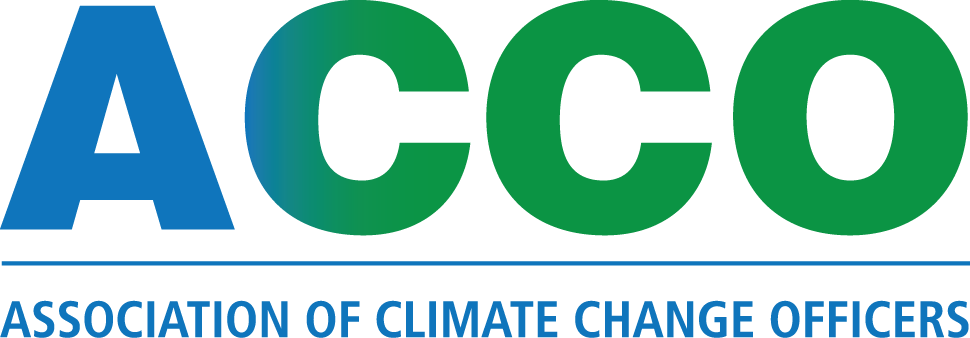Maintaining the Certified Climate Change Professional® (CC-P®) Credential
Maintaining the CC-P® credential requires a combination of continuing education and demonstrated usage on an annual basis. In order to maintain good standing as a CC-P®, you are required to:
Participate in 8 hours of annual continuing education
Satisfy 40 hours of annual usage requirements
Gather your paperwork and submit your maintenance package
Submit your annual maintenance fee
Maintenance fees and executed checklists are due based upon the date in which your CC-P® was issued.
| Annual Maintenance Documentation & Fee Processing: |
|
Continuing Education
Completion of a minimum of 8 hours of continuing education courses annually (subject to the same guidelines as satisfying elective requirements when earning the CC-P®). There may be periodic refresh requirements of competencies covered in the exam modules every few years (e.g. climate science, policy changes, new GHG accounting standards/practices).
At this time, there are no specific topics, curriculum or courses required for continuing education.
Usage
Contribution to the community of climate practitioners through a minimum of 40 hours of service in the following categories. All usage requirements must be satisfied through content related to ACCO's mission and/or the Core Competencies for Climate Change Officers and Professionals. Each usage category has a maximum time allotted in order to ensure that practitioners are leveraging a variety of approaches toward using their climate change competencies, growing the community of practice and advancing constructive climate action.
Speaking at public events: Time allotted for speaking at public events is for the duration of the session in which you have presented as opposed to the entire event. Up to 10 hours may be attributed to speaking at public events.
Conducting research: Research projects that result in broad publication may be considered for inclusion in satisfying the usage requirements. You will be required to provide an estimate for time spent conducting the research and writing publication. Up to 15 hours may be attributed to conducting research (with a minimum of 5 hours per activity).
Developing and administering training programs for internal/external stakeholders: CC-P® holders are encouraged to help institutionalize climate change into decision-making within and external to their organizations through development and administration of training programs. You are not required to be the instructor or presenter in order for time spent on the training program to qualify for satisfaction of the usage requirements. Up to 12 hours may be attributed (with a minimum of 6 hours per program).
Involvement in community or working groups: Climate change practitioners should be active leaders in their communities, organizations and/or sectors. Time spent convening, administering or serving in a leadership role in a community or working group can be applied toward satisfying CC-P® usage requirements. Up to 15 hours may be attributed (minimum of 6 hours per activity).
Advocacy: Shaping climate related policy is an important role for CC-P® practitioners. You may earn up to 12 hours (minimum of 6 hours per initiative)
Publication of blogs, case studies, white papers and/or other reports: Sharing experiential insights with peer practitioners is a critical component of advancing the climate change community of practice. CC-P® holders may satisfy usage requirements and apply time spent writing and publishing related materials. Up to 15 hours may be attributed (up to 15 hours – up to 3 publications allowed).
Usage guidelines may be updated and/or amended in the future.
Maintenance Fee
Certified Climate Change Professionals® are required to pay certification maintenance fees in order to keep their certification status active. Certification maintenance fees fund the general administration of ACCO's credentialing programs, including activities such as periodic practice analyses, communication about certification, and accurate record keeping enabling the recognition of credential holders.
There is an annual maintenance fee for all credential holders ($95 for ACCO members and $175 for non-members).
Certification maintenance fee schedules are based upon the date in which the credential is awarded. You will be your maintenance schedule in your award notification.
CC-P® holders are sent reminders via email when certification maintenance fees are due, so it is important for each individual to keep ACCO informed of changes to contact information. Certification records and contact information may be viewed and updated online by logging in to your member management profile on the ACCO member portal.
Maintenance fees for the CC-P® are separate from maintaining membership in ACCO. Being an ACCO member is not required to maintain the CC-P®, though ACCO member benefits are only available to members in good standing.
Lapsed Certification Due to Non-Payment of Maintenance Fees: If a maintenance payment is not received within 60 days of the maintenance deadline, the Certified Climate Change Professional (CC-P®) will go into an “Inactive” status for up to nine months.
While “Inactive” the individual is not permitted to use the Certified Climate Change Professional® (CC-P®) credential and will not be listed in ACCO's directory of Certified Climate Change Professionals®.
An individual may return to an “Active” status by submitting a reinstatement fee.
In order to have certification reinstated from "inactive" status, the individual must pay the maintenance fee and a $75 reinstatement fee.
Being in the “Inactive” status does not affect the annual certification cycle and corresponding continuing education and usage requirements. It does NOT extend the deadline for recertification.
Regaining "Active" Status after a "Lapse": If the reinstatement payment is not received within 1 year of the maintenance deadline, certification will lapse and the individual will be notified that he or she is no longer a Certified Climate Change Professional® (CC-P®).
After a lapse in certification, the individual will be required to re-establish eligibility under the current requirements of the credential and pass the corresponding exam modules in order to regain certification and "active" status.

